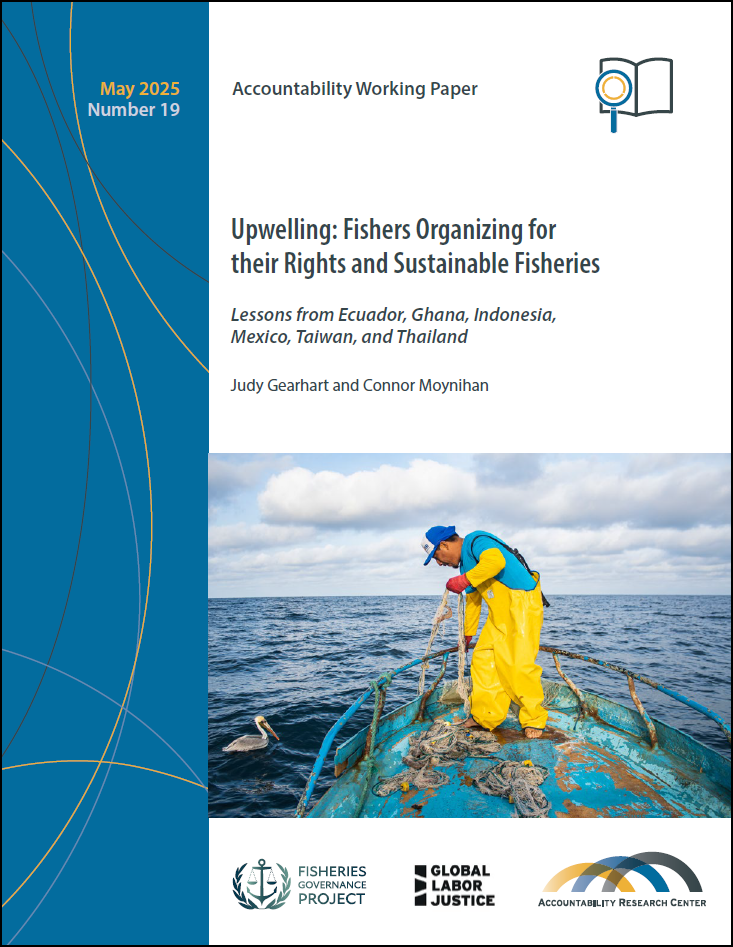
Upwelling: Fishers Organizing for their Rights and Sustainable Fisheries
Date: May 2025
Author(s): Judy Gearhart and Connor Moynihan
Publication type: ARC Accountability Working Paper
Published by: Accountability Research Center
Also available in Bahasa, Chinese, and Thai.
Fishers face increased risks to their lives and livelihoods. Climate change and overfishing are sending fishers out to sea for longer periods of time or at distances beyond the capacity of their vessels. In response, fishers are pursuing new strategies to organize, build power, and defend their rights.
This paper presents lessons from fisher organizing in diverse sectors. It aligns with the International Labour Organization (ILO) Convention 188 (C 188) on Work in Fishing, which defines fishers as all those working in marine capture, from artisanal fisherfolk to workers on the distant water fleet (DWF). The research reviews organizing trends in six countries and identifies common challenges and factors contributing to fisher organizing. In all six countries—Ecuador, Ghana, Indonesia, Mexico, Taiwan, and Thailand—new organizing initiatives have recently emerged.
This research considers a range of dynamics that affect fisher organizing and their ability to access information, seek remedy, and influence policy outcomes. It provides insights from interviews with organizers and other fishery experts. The findings highlight areas where more work and strategizing are needed to build stronger and more influential fisher organizations.
Judy Gearhart has advocated for workers’ rights in global supply chains since the 1990s when she started as an organizer in Mexico. She leads ARC’s program on worker rights and corporate accountability and teaches classes on human rights in the global economy at American University and Columbia University. Gearhart previously served as the executive director at the International Labor Rights Forum (now Global Labor Justice) where she helped launch the Seafood Working Group.
Connor Moynihan is an ARC researcher working on human rights and accountability in fisheries. He has worked in community organizing and environmental justice in the US and Paraguay. He holds a master’s degree in natural resources and sustainable development from American University’s School of International Service.
